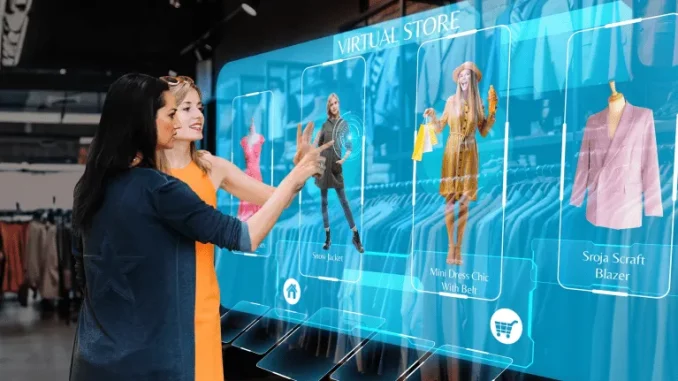
To retailers the everchanging circumstances of the consumer is our chance.Advances in the past few years have taken a completely new direction.Although retail has not been as drastically affected by Artificial Intelligence (AI) as some people forecast, its development is a new period covering how we shop, the relationships between brands and consumers and the relationship between retailers and consumers.A I will change the entire structure of future retail, introduce intelligence into supply chains, inventory management and even after-sale services that answer questions in real-time.Just how is A I changing consumer retail? Below are five most obvious ways.But putting A I to work should be an easy decision, made for the profits it never fails to deliver and its ability to make suggestions for improvement.
After all, A I is taking all that data and managing it for you: Merchants are allowed to tailor the customer experience by taking care of aggregated data with an algorithm which composes unique experiences in real time on adjusting machine-learned rules according to customer characteristics.AI can predict what people want and propose tailormade recommendations based on historical shopping records and customers ‘clearly expressed needs. For example, in order to create recommendations online retailers like Amazon recommend products based on purchase history and browsing record, ensuring that shoppers are shown merchandise they ‘like best’: It’s an entirely different sort of personalized sales pitch.Personalization at this level not only increases satisfaction — it also increases sales and brand loyalty.
Virtual Assistants and Chat-bots
As AI spreads across the retail sector, virtual assistants and chatbots are becoming common sights in high streets.Operating in real time, such tools can answer customer questions or assist with shopping chores of all kinds. They perform many functions, ranging from guiding a customer to the right product, right through to processing orders. Virtual assistants with A I back-action can provide consistent support day and night (as needed) through the internet, which improves overall customer service. They also improve dynamically as they learn from their own interactions: gradually becoming more efficient and better over time.fit.
Enhanced Inventory Management
Traditional inventory management is falling behind because AI is too much for it. Most traditional inventory management methods rely excessively on guessing. The result may be either that an inventory tends to be overstocked, or one exhausted. AI could analyze sales data, estimate trends, and adjust its inventory levels accordingly. Fewer surplus items lowers not only production expenses but also places on sale things sought by consumers. What’s more, not only does AI keep this website up-and-running by looking for alternatives as arisen–but in addition introduces traditional concepts at all of its entry points! One more Also, AI keeps inventory management flexible and robust to supply chain disruptions.
In-Store Experience Augmentation
Physical stores will not be left behind by the rapid growth in online shopping. Furthermore, AI is making the in-store experience even more golden. Technologies such like AR (augmented reality) and smart mirrors together provide customers with a better all-round experience. Now people can see themselves fully assembled: wearing clothes, feature a piece of furniture in their home, and have personal recommendations while they tour the store. Stores also make use of tools powered by AI to supervise customer movement through their precincts, shedding light on these patterns and so much in between atomizes store arrangements.
Dynamic Pricing Strategies
AI makes it possible for businesses to adopt dynamic price segmentation strategies, as I pointed out in my previous column. Prices change with demand, the state of competition and the happening in general of the market. In this way merchants can get customers to themselves and yet reap the maximum profits. For example, in the peak shopping seasons AI will advise merchants to carefully choose prices that attract shoppers while making a profit. The result is the same; no matter what your walk in life, one can find a shopping experience that is all about yourself. Dynamic pricingIn e-commerce, price comparisons are available with the click of a mouse. You need an edge in this environment.
Fraud Detection and Security
Fraud detection is not only an issue for the retail industry, but in recent years with large digital transactions on the rise,image has become vital. AI is playing a big role in identifying and stopping fraudulent activities. By analyzing transaction patterns and customer behavior, it can identify anomalies that may indicate fraud. This proactive approach not only saves retailers money but also creates trust between companies and customers. When there are safeguards in place to prevent your information from being stolen or leaked online, you feel safer shopping.
Sustainability and ethically-retailing
AI has an equally big interest in the great trend toward sustainable, ethical shopping today. Adopting AI tools is all an increasing number of stores want to monitor and optimize their supply channels, reduce waste production, promote sustainable activities like recycling or energy saving efforts. For example, AI technologies can analyze data on shipping times in order to figure out where products are most easily delivered with the least environmental impact and therefore reduce emissions. Moreover–from the standpoint of life cycles for materials to humane considerations about man-made means to get there–AI can do much. As people themselves become more environmentally sound in mind, AI-oriented operational practices will be even more crucial for the future direction of retail. Conclusion
That’s what the introduction of AI means to the retail industry – it is not just a flash, but a fundamental change in how people make purchases. AI turning retail faster, more efficient, and more customer oriented is making these kinds of differentiated retail a reality. As technology continues to develop, so will the impact of AI on retail — providing entirely new directions for innovation and growth. Retailers that embrace AI are well-equipped for succeeding in an age where smart, data-driven solutions will define the future of shopping.

Leave a Reply